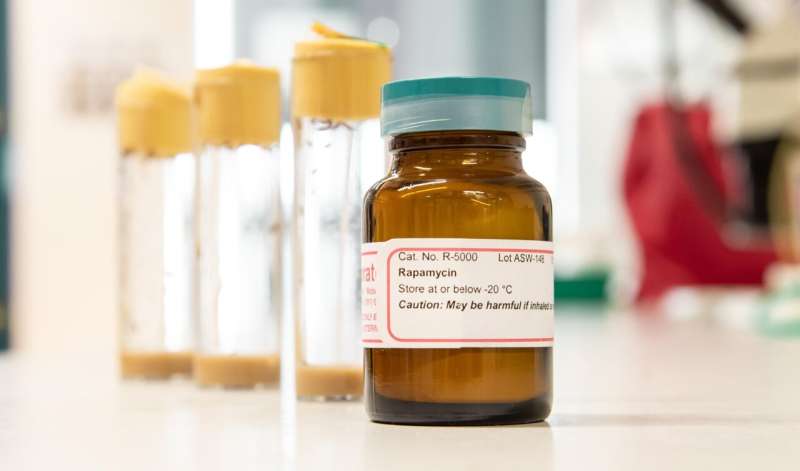This article has been reviewed according to Science X's editorial process and policies. Editors have highlighted the following attributes while ensuring the content's credibility:
fact-checked
peer-reviewed publication
trusted source
proofread
Anti-aging drug rapamycin found to improve immune function through endolysosomes

The therapeutic drug rapamycin, which is normally used in cancer therapy and after organ transplants, can extend the lifespan and health span of laboratory animals. Understanding how rapamycin extends lifespan is important, as it helps to prevent unwanted side effects.
"We know that rapamycin extends lifespan via two mechanisms: increased autophagy and decreased activity of a protein called S6K. It has been shown that mice with altered S6K live longer. But the mechanism by which S6K extends lifespan is unclear," says Sebastian Grönke, co-author of the study.
Better immune function in old age thanks to endolysosomes
The researchers were able to show that an altered activity of S6K influences the endolysosomes. These break down material in the cells and play an important role in regulating various cellular processes, such as inflammatory reactions. "When we suppressed S6K activity or the inflammatory signaling in the fat body, the flies lived longer, showed better immune function at old age, and were able to clear bacterial infections more efficiently," explains Pingze Zhang, first author of the study.
"Ultimately, we assume that the endolysosomes prevent the age-related increase in pro-inflammatory factors and that this is precisely where rapamycin attacks," concludes Sebastian Grönke.
The researchers also identified an important link between the endolysosomal system and age-related inflammation: the protein syntaxin 13. This protein is increased in the liver of rapamycin-treated mice, suggesting that the regulation of the endolysosomal system and the control of inflammatory pathways during aging is similar between flies and mice.
The study is published in the journal Nature Aging.
More information: Pingze Zhang et al, Inhibition of S6K lowers age-related inflammation and increases lifespan through the endolysosomal system, Nature Aging (2024). DOI: 10.1038/s43587-024-00578-3



















